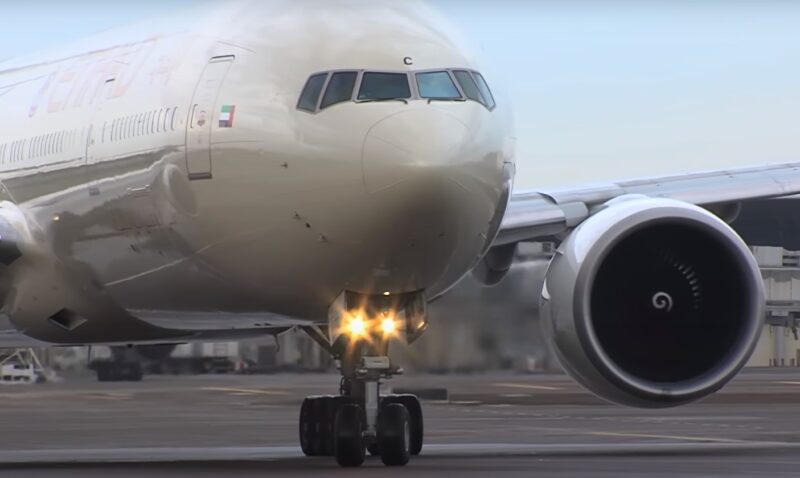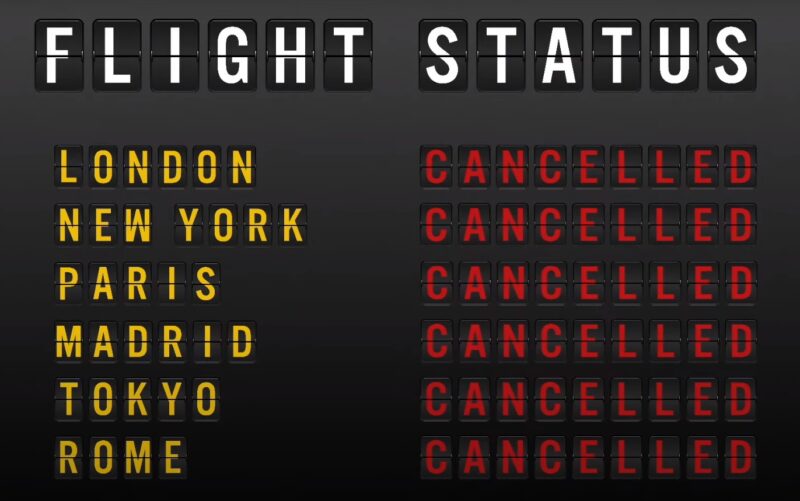The world of travel is as complex as it is exciting. Every facet, every term, and every process plays a crucial part in getting you from point A to point B smoothly and efficiently. One such term, often misunderstood or overlooked, is “Trip in Vain.” As an airport worker with years of experience under my belt, I’m here to share with you a comprehensive understanding of what this means and why it matters.
The Basics You Need to Know

Before we dive into the technicalities of a “Trip in Vain,” let’s establish some groundwork. This section will give you an overall understanding of the basic terms involved in the airline industry language, some of which directly relate to understanding a “Trip in Vain.”
What is a “Trip in Vain”?

A “Trip in Vain” refers to a situation where a passenger’s travel becomes pointless due to a significant delay or cancellation. These circumstances might render the original purpose of the trip impossible or impractical. To put it simply, if the reason for your trip is nullified because of the travel disruption, your journey may be considered a “Trip in Vain.”
Common Reasons for It
There are several common reasons for a “Trip in Vain.” The most frequent one is due to substantial delays or cancellations caused by bad weather, mechanical problems, or other unforeseen events. When these disruptions occur, they might:
- Cause you to miss an important event, like a business meeting, wedding, or funeral.
- Result in additional costs that outweigh the purpose of your trip.
- Extend the travel time to a point where it becomes unreasonable to continue the journey.
Misconceptions About It

Despite the straightforward concept, there are still many misconceptions surrounding a “Trip in Vain.” Some people mistakenly think that any inconvenience or minor delay can be classified as such. But remember:
- A “Trip in Vain” does not apply if you simply change your mind about traveling.
- It is not applicable if the delay or disruption is minimal and doesn’t significantly affect your travel plans.
The Importance of Knowing About a “Trip in Vain”
Understanding what constitutes a “Trip in Vain” can be incredibly helpful when traveling, especially if you encounter significant disruptions. Knowing about it allows you to:
- Assert your rights as a passenger.
- Make informed decisions about how to proceed with your travel plans.
- Avoid unnecessary costs and inconvenience.
Applying “Trip in Vain” Policy
With the basics out of the way, let’s delve into the nuances of applying a “Trip in Vain” policy. Different airlines have different policies, but they generally follow the same principles.
Recognizing When This Policy Applies

Not every situation of travel disruption can be categorized as a “Trip in Vain.” It’s crucial to recognize when the policy applies to assert your rights effectively. Generally, this policy applies when:
- There’s a significant delay or cancellation of your flight.
- The delay causes you to miss the purpose of your trip.
Different Airline Policies
While all airlines might have a “Trip in Vain” policy, they can differ in terms of their rules and application. It’s essential to understand that:
- Some airlines require a minimum delay duration before considering a trip as “in vain.”
- Certain airlines may apply the policy more leniently than others.
What to Do When Your Trip Becomes “In Vain”
When you find yourself in a “Trip in Vain” situation, there are specific steps you can take to handle it effectively. Here are a few:
- Contact the airline’s customer service immediately.
- Clearly explain why your trip is now in vain.
- Ask about your options, such as rebooking, refunds, or compensation.
Your Rights and Remedies

When your journey becomes a “Trip in Vain”, you are entitled to certain rights and remedies from the airline. These might include:
- A full or partial refund of your ticket.
- The option to rebook your flight without additional costs.
- In some cases, compensation for the inconvenience caused.
When This Policy Does Not Apply
It’s equally important to understand when a “Trip in Vain” policy does not apply. This knowledge can help you manage your expectations and plan accordingly.
Personal or Minor Disruptions
A “Trip in Vain” policy does not cover personal disruptions or minor flight delays. This means that if you:
- Change your mind about traveling.
- Are unable to travel due to personal reasons.
- Experience a minor delay that doesn’t significantly affect your travel plans.
In these cases, the “Trip in Vain” policy would not apply.
Acts of God

In the airline industry, “Acts of God” are unforeseeable and unpreventable events that may cause flight disruptions. These include:
- Severe weather conditions, like hurricanes or blizzards.
- Natural disasters, like earthquakes or volcanic eruptions.
While these situations might cause significant travel disruptions, the “Trip in Vain” policy may not necessarily apply as airlines typically have specific policies for such events.
Non-Airline Related Issues
If your travel disruption is not directly related to the airline’s operations, the “Trip in Vain” policy likely won’t apply. This might include situations such as:
- Issues with your travel documents.
- Problems with your travel arrangements, like hotel bookings or car rentals.
Exceptions and Special Cases
Although the “Trip in Vain” policy generally doesn’t apply to the above cases, there are some exceptions. For instance, some airlines might be more lenient and offer assistance or compensation, even if they’re not legally obligated to do so.
Ways to Mitigate a “Trip in Vain”
Even though a “Trip in Vain” situation is usually beyond your control, there are ways to mitigate its impact. These strategies can help you reduce the risk and handle such scenarios better.
Plan and Book Wisely
Preparation is key when it comes to avoiding a “Trip in Vain.” This includes:
- Booking direct flights when possible to avoid potential complications with layovers.
- Scheduling your flights with enough buffer time to account for possible delays.
Stay Informed and Updated
Staying informed about your flight status and airline policies can go a long way. Make sure to:
- Check your flight status regularly.
- Keep up-to-date with the airline’s policies, especially regarding delays and cancellations.
Consider Travel Insurance

Travel insurance can provide a safety net in case of significant travel disruptions. It can:
- Cover additional costs incurred due to flight delays or cancellations.
- Offer compensation in case of a “Trip in Vain.”
Know Your Rights as a Passenger
Finally, knowing your rights as a passenger is essential in handling a “Trip in Vain” situation effectively. Remember that you have the right to:
- Be informed about any changes to your flight status.
- Be offered alternatives or compensation in case of significant disruptions.
Final Words
Knowing about the “Trip in Vain” concept is crucial for every traveler. It not only empowers you with knowledge about your rights but also prepares you to handle travel disruptions effectively. The next time you find yourself in an airport, remember this: even when things go south, there’s always a way to navigate the situation, thanks to policies like “Trip in Vain.” Safe travels!
Related Posts:
- Story Behind Mauritius’ Spectacular Underwater…
- Organizing Your Dream Road Trip: Melbourne To…
- Rev Up Your Road Trip: 11 Must-Have Automotive Accessories
- 10 Places to Explore on a Boston to Miami Road Trip…
- Traveling Canada? Check These 14 Tips First Before…
- Is There a Legal Drinking Age on Planes? Sip or…







